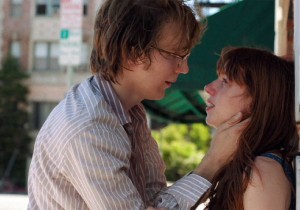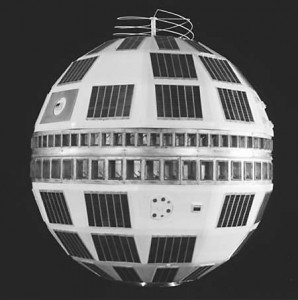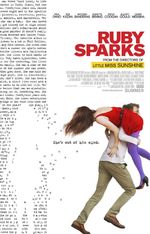Interview: Zoe Kazan and Paul Dano of “Ruby Sparks”
Posted on July 25, 2012 at 8:00 am
Zoe Kazan, the grand-daughter of legendary director Elia Kazan (“On the Waterfront”) and the daughter of two writers, has made a strong impression in small roles opposite Meryl Streep (“It’s Complicated”) and Leonardo DiCaprio (“Revolutionary Road”). Her boyfriend is Paul Dano, whose performances in films like “There Will be Blood” and “Little Miss Sunshine” have earned him the reputation of one of the most thoughtful actors of his generation. Kazan wrote and produced “Ruby Sparks” and they appear in it together. Dano plays an acclaimed young writer who is struggling to follow his successful first book and is stunned and then captivated when the young woman he creates with his typewriter comes to life.
Did you know when you wrote the script that you would be playing the title character?
Kazan: Well, it wasn’t the title character when I wrote the script – that happened in retrospect, but yeah – I had a sort of flash of inspiration, not unlike Calvin . I had a dream and I woke up in the morning and the scenes of this movie were in my head and I wrote it down as fast as I could so I wouldn’t lose it and then showed those five or 10 pages to Paul and he said “you’re writing this for us, right?” It really hadn’t to occurred to me – and then it was completely obvious to me that that was what I was doing – so from that point on I knew I was writing for myself and I think it was…they were just such clear people to me that I didn’t think too much about us. It wasn’t until later when I was actually having to do it that I said “oh God, what have I written?” For so long, I was just thinking about it as a writer but it wasn’t until the very last month of preparation that I even started thinking about acting it.
Both of them are really acting-challenge roles – people don’t like to play writers because they are sitting and looking at a piece of paper, and a lot of it is very internal.
Dano: Well, you just sort of take the basic building blocks that the script gives you. In this case he’s gotten out of a long relationship, he does not have any friends—his brother, rather, is his only friend, he lives in a big house alone, he got a dog to try and help them meet people but that doesn’t seem to be working out, his father has passed away, and he’s had a huge success that he cannot follow up and has writer’s block and so those are all just great, great, great starting points to sort of then figure out, “okay, how do you feel about those things?” Because each of those is a big thing and a big feeling and you can start to figure out what happened before that, especially with his book and how he got into writing and what his relationship maybe with his father was like and with the ex-girlfriend– you just sort of build it up but you start with what’s on the page that’s given to you and then you just sort of fill in the blanks.
And Zoe, your character was almost like an acting exercise, somebody throwing things at you, ”now be this, and now be that.” How do you create a character, that is, when you’re playing something so changeable?
Kazan: Well, you know, the main thing that Jonathan and Valerie and I talked about in the writing and then in the playing of her was that we wanted her to feel very real, and we never wanted her to feel like a fantasy or like the idea of a person. It was sort of like doing my preparation, like, “who is Ruby?” and finding things out about her as I wrote. She’s a very forthright person, and she’s sort of a person in charge of her own desires, she knows what she wants and she’s more straightforward than I am as a person, and there was some surprise in that, especially when you started playing it in her rehearsal—where she lived, where her voice is where her energy is, she’s very front foot, very forward and I think a little more cat-like than dog-like. So, a part of it was just moving away from the writer’s head, which was all about the story and how these people interact and then moving into my body and then feeling who she was physically. That was a real moment of discovery for me, which I wasn’t anticipating, because I sort of thought writing it, I would know everything, but I learned a lot just within the first week when we were rehearsing. The important thing for me with the changes that happened to Ruby me was that they feel like a related person but not the same – he’s changing her, he’s bringing out a different side of her, so, those things were fun to play because they were like an exaggerated quality. But you know, we were always trying to keep it grounded in reality.


